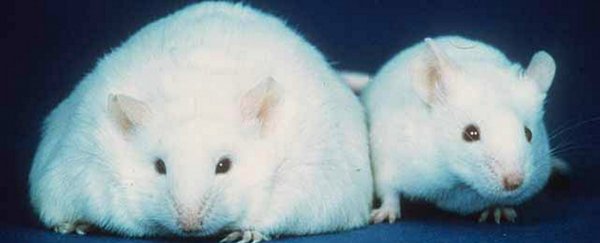Although we often think of it as the enemy, the fat under our skin can help us fight off deadly bacteria, new research by a team at the University of California, San Diego School of Medicine, suggests.
In the past it was thought that, once bacteria got past our skin, the only things protecting us from infection were our immune cells, but the new study shows that dermal fat cells, which are called adipocytes, play an important and previously unknown role in the process.
"It was thought that once the skin barrier was broken, it was entirely the responsibility of circulating [white] blood cells like neutrophils and macrophages to protect us from getting sepsis," said Richard Gallo, the lead investigator, in a press release.
"But it takes time to recruit these cells [to the wound site]. We now show that the fat stem cells are responsible for protecting us. That was totally unexpected. It was not known that adipocytes could produce antimicrobials, let alone that they make almost as much as a neutrophil."
In their study, they infected mice with Staphylococcus aureus, a bacteria that's a major cause of skin infections. Within hours, the team found that both the number and size of fat cells at the site of an infection had increased, and these fat cells were capable of producing high amounts of an antimicrobial peptide (AMP) called cathelicidin antimicrobial peptide (CAMP). AMPs are important immune system molecules that kill invasive pathogens such as bacteria and viruses.
To prove that the fat cells were actively helping to fight off infection, they tested what happened when S. aureus was exposed to mice that either couldn't produce dermal fat cells or that had fat cells that didn't produce AMPs. In both cases the mice suffered from more frequent and severe infections than those mice with properly functioning skin fat.
The results have been published in Science and show a previously unknown step in the complex response of the immune system.
But the clinical implications of the research are a little murkier - although AMPs help to fight infection, they can also be overproduced and are linked to inflammation and autoimmune conditions such as lupus.
However, it's an important first step into better understanding how our immune system works - and what happens when it goes wrong.
"The key is that we now know this part of the immune response puzzle. It opens fantastic new options for study," said Gallo in the release. "For example, current drugs designed for use in diabetics might be beneficial to other people who need to boost this aspect of immunity. Conversely, these findings may help researchers understand disease associations with obesity and develop new strategies to optimise care."
And, of course, it's also evidence that a little fat under our skin can be a good thing.
Source: EurekAlert
